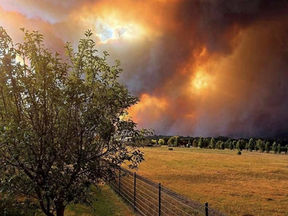Next Australian PM to Face Global Turmoil and Urgent Adaptation
- admin928749
- Apr 30, 2025
- 3 min read

Whoever wins this weekend’s federal election won’t be walking into a stable world. Instead, they’ll inherit a global landscape that’s more unpredictable, more dangerous, and more fragile than we’ve seen in decades.
From growing tensions with China to a volatile global economy and deep uncertainty over the U.S. alliance under Donald Trump, experts say Australia can’t afford to waste any more time.
Here’s a breakdown of what key figures believe the next PM must do — fast.
Wake up to a “very difficult situation”
Peter Jennings, a former senior Defence official and now head of Strategic Analysis Australia, put it bluntly: “We’re in a very difficult situation.”
Australia’s defence force, he says, has suffered from decades of under-investment, and while China ramps up its military and geopolitical influence in the Indo-Pacific, Australia is still playing catch-up.
“We’re losing capabilities quickly,” he warned. And the major investments we are making? They won’t deliver real firepower for 10 to 15 years.
AUKUS is in “crisis”
Jennings didn't sugarcoat it — he thinks the landmark AUKUS security pact (with the U.S. and UK) is in danger of sinking into the quicksand.
While long-term plans are in place, he believes more short-term, homegrown solutions are critical — particularly ones driven by Australia’s private sector.
Figure out how to deal with Trump
Like it or not, Donald Trump is back in power, and that presents major headaches for Australia’s foreign policy.
Albanese’s current strategy of keeping an “arms-length” approach has worked so far, Jennings said — but it’s not going to cut it anymore.
The U.S. remains our most important strategic and economic partner, but with Trump pushing unpredictable policies, Australia has to find a way to stay in the room without losing its footing.
Brace for global economic shocks
Sean Turnell — an economist and advisor who spent nearly two years imprisoned in Myanmar — says the next PM must stop assuming the economy will run on autopilot.
“There’s a sense of ‘situation normal’ when it’s anything but,” he warned.
Trade tensions, political unpredictability, and arbitrary decisions from big powers like the U.S. could shake Australia’s economy hard. He says it’s time for a “fortress balance sheet” — a budget that’s built to survive global shocks.
Right now, neither party is truly addressing that risk, he said.
The defence budget needs real backing
If Australia wants a secure future, Turnell argues, the economy and national security must work hand in hand.
A stronger budget = more room for defence spending. Without that, even the best-laid military strategies will fall short.
The Coalition has committed to boosting defence spending by $21 billion by 2030. Labor, so far, hasn’t made any big defence announcements in this campaign.
First visits matter
The first place a new prime minister visits after an election sends a big message about Australia’s priorities.
Security and defence experts say the next PM should call Trump immediately and plan a visit to Indonesia or another Indo-Pacific partner soon after. Since Paul Keating in the 1990s, that’s been the tradition — and for good reason.
Jennifer Parker, a former naval officer and now a security expert at ANU, said it best:
“There’s something significant in an Australian prime minister visiting Indonesia very quickly following an election… but a direct call to the U.S. president is just as critical.”
In short, the next government won’t have the luxury of easing into power. It’s going to be a fast, complex, and critical few years ahead — and experts say Australia can’t afford to get it wrong.
Want a quick summary of what the election platforms say about defence, alliances or the economy?
Visit the Aus News Lanka homepage for more updates.






































Comments